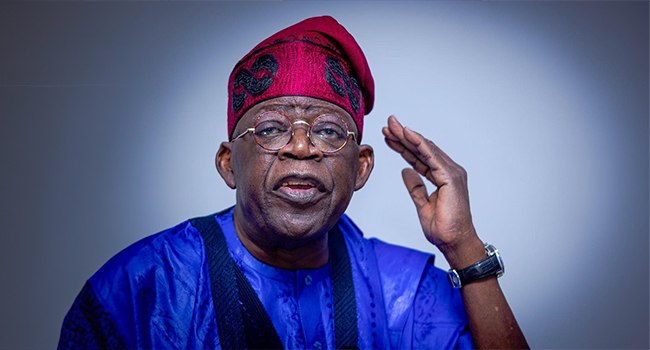
Tinubu’s “Nigeria First” Policy and the Case for Economic Independence, by Umar Farouk Bala
President Bola Tinubu’s “Nigeria First” directive represents a timely and strategic pivot toward economic self-reliance — one that aligns with a growing global trend toward prioritizing national interest and strengthening internal capacity.
The Minister of Information and National Orientation, Mohammed Idris, made this known to State House correspondents after the Federal Executive Council meeting held on Monday, May 5, 2025, at the Aso Rock Presidential Villa in Abuja.
This shift mirrors a global pattern reignited by former U.S. President Donald Trump’s “America First” doctrine, which has since reshaped how countries approach trade, production, and economic sovereignty.
By directing all Federal Government Ministries, Departments, and Agencies (MDAs) to patronize locally made goods and services, President Tinubu is responding not only to Nigeria’s economic realities but also to a changing global climate.
Countries are increasingly moving away from overdependence on imports and toward strengthening domestic resilience. Tinubu’s policy reflects this reality.
It is a recognition that Nigeria must not be left behind in a world where self-sufficiency is becoming the new standard. The directive is not a mere statement of intent.
It has the potential to rejuvenate local manufacturing, stimulate job creation, and preserve Nigeria’s limited foreign reserves. Between 2020 and 2021, Nigeria spent over $100 billion on imports — boosting other economies while deepening domestic unemployment and putting more pressure on the naira.
Read Also:
The “Nigeria First” policy is a deliberate move to reverse this damaging trend and foster a new culture of productivity and economic patriotism.
While critics may point to Nigeria’s infrastructural and regulatory gaps, it is important to note that no country attained industrial development by waiting for perfect conditions.
The world’s most industrialised nations — from the U.S. to China — all began by deliberately shielding and supporting their local industries. For Nigeria, this form of strategic protectionism is not just desirable; it is necessary.
By promoting indigenous firms such as Innoson and Nord, the policy opens up crucial opportunities for local industries to scale. These companies are already producing quality vehicles and equipment that, with consistent government backing, can stand toe-to-toe with foreign counterparts.
Supporting them is a win-win — it helps keep wealth within the economy, drives innovation, and reinforces our economic independence. However, the success of “Nigeria First” will depend on follow-through.
The government must be ready to confront the key challenges that have stifled local production for years — from erratic power supply to policy inconsistency.
These are not reasons to delay; they are problems to be solved. What is clear is that Nigeria cannot continue to be a passive consumer in the global economy.
President Tinubu’s policy is not a populist soundbite — it is a serious and necessary shift in direction. If implemented with discipline, integrity, and measurable milestones, it could very well transform Nigeria from a consuming nation to a producing one.
The time has come for Nigerians to believe in their own capacity — and for government to lead the way.












































